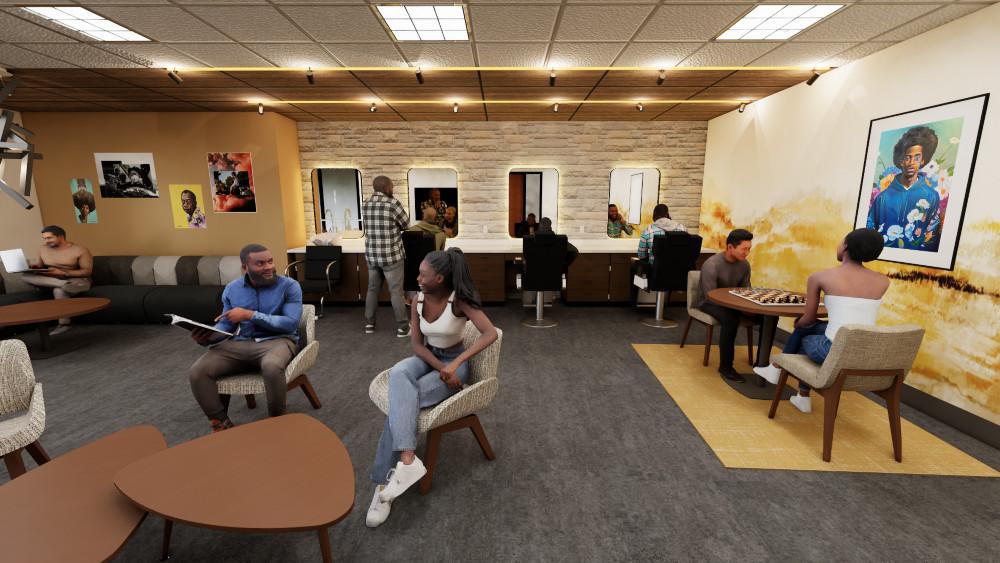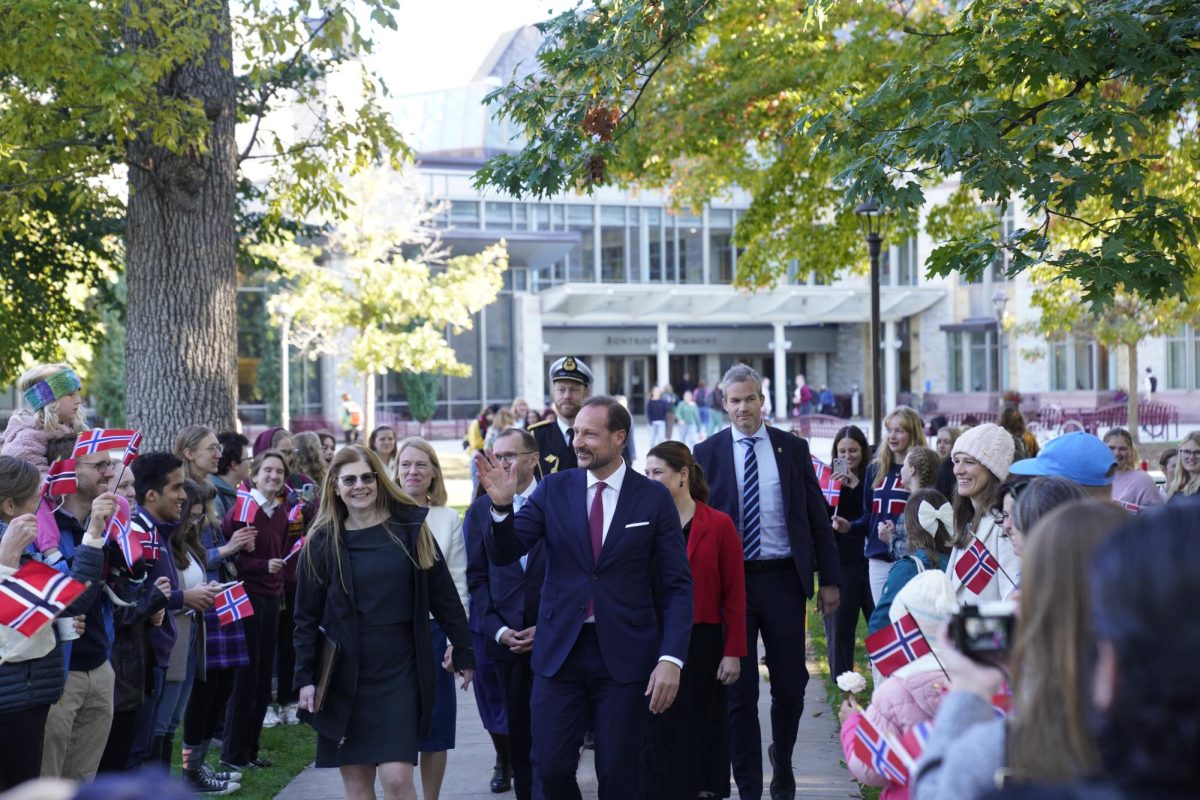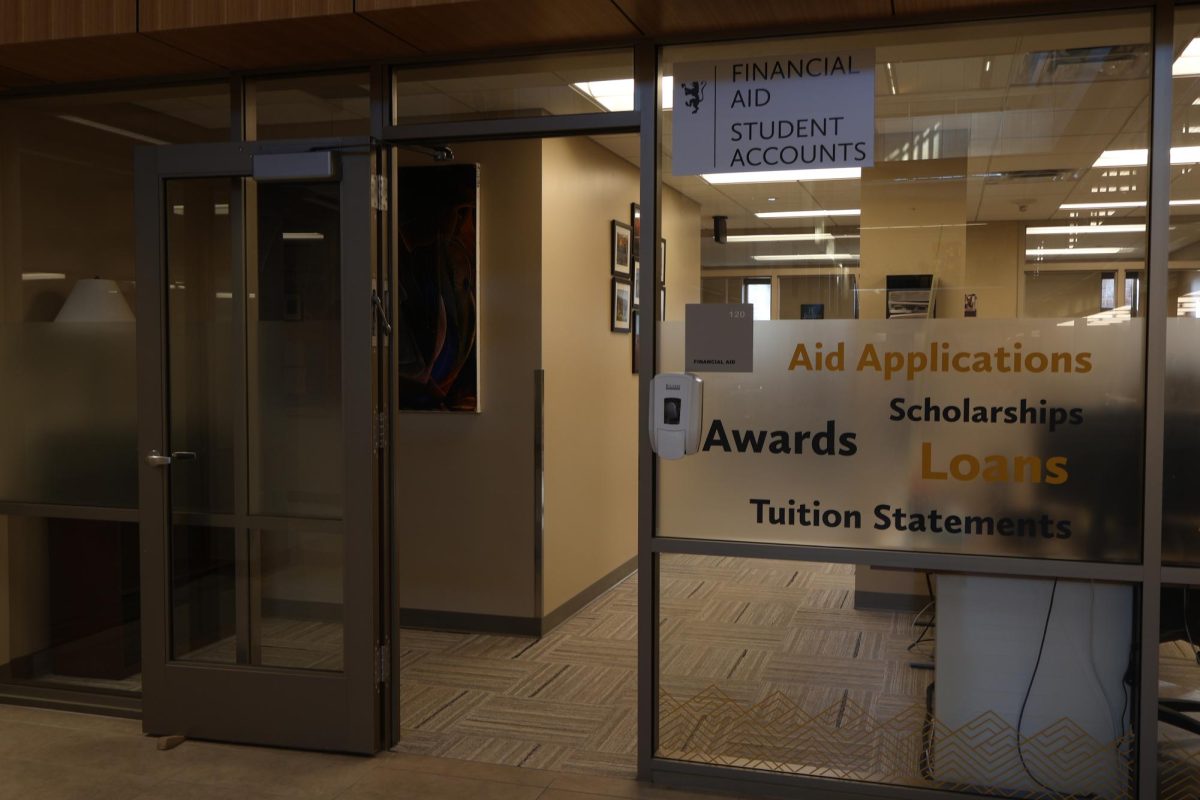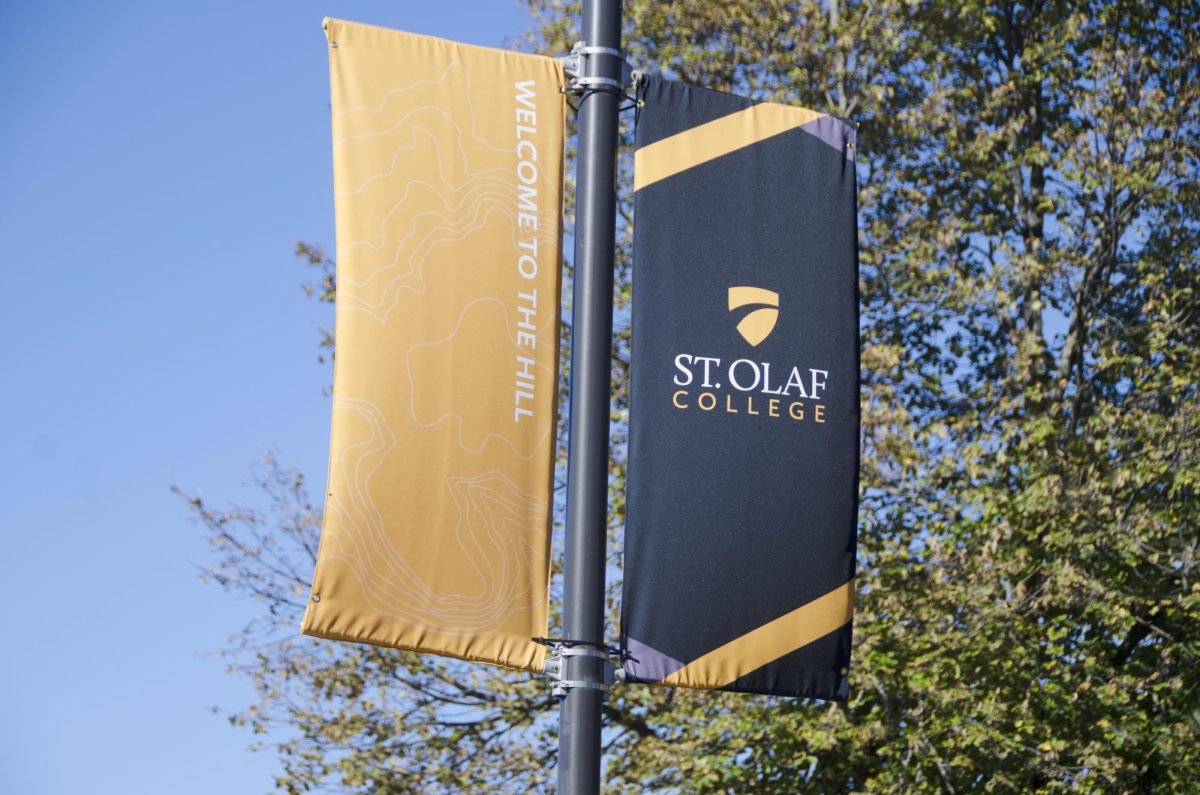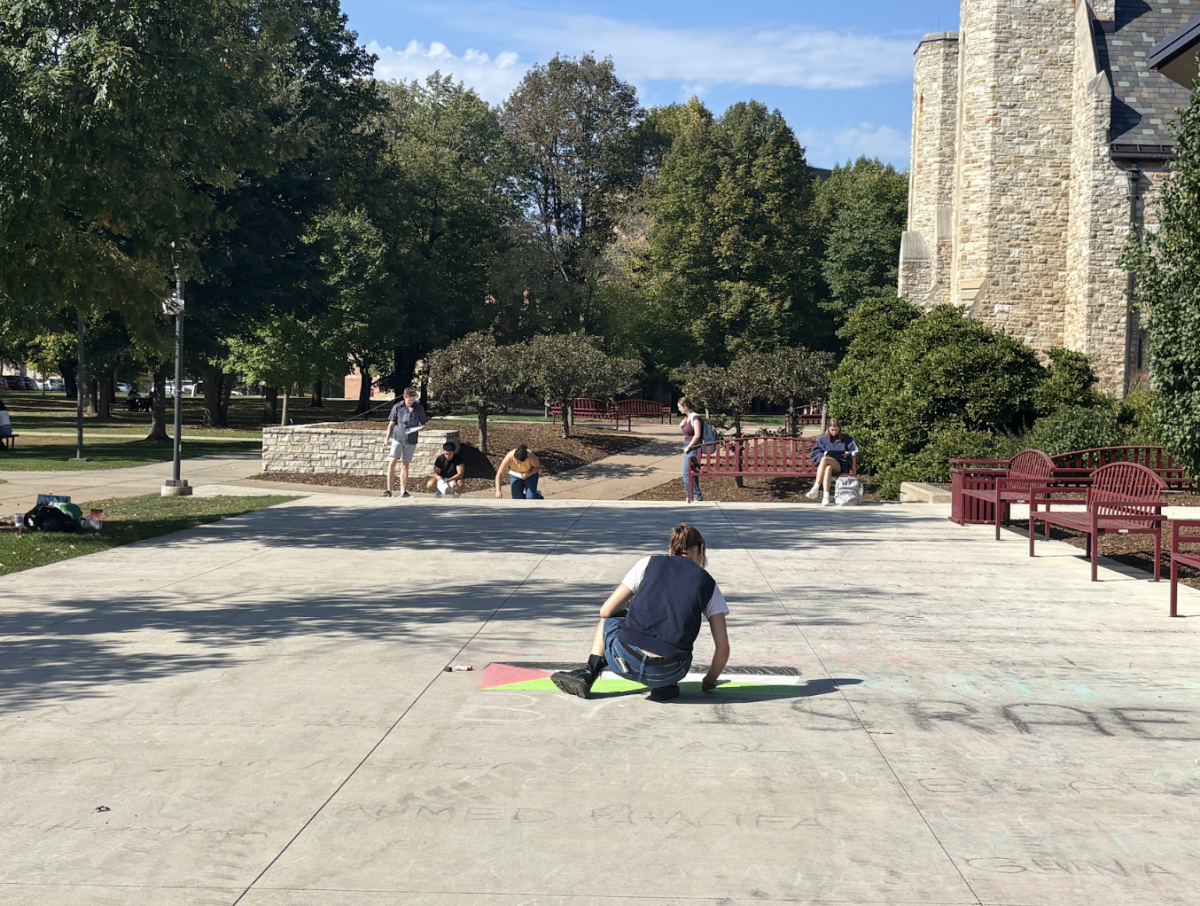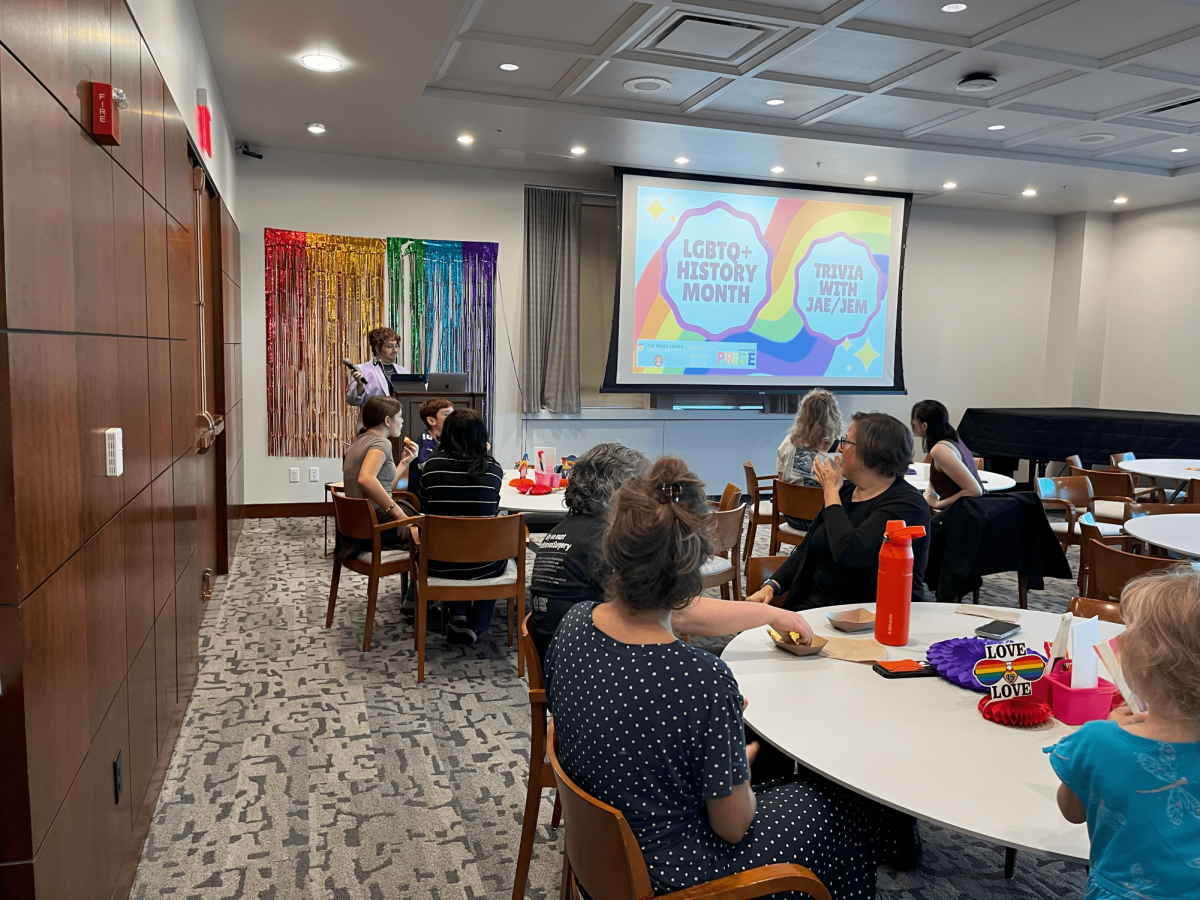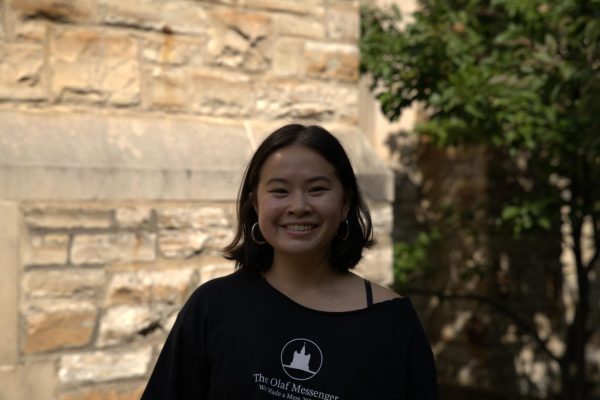Photo courtesy of Aidan Lloyd
For Aidan Lloyd ’24, barbershops are a vibrant space that needed to be brought to St. Olaf College. Growing up, his Saturday mornings consisted of going to the local barbershop, which was filled with rap music, bootlegged movies, and loud conversations ranging from current events to sports. When arriving on the Hill, Lloyd faced a challenge — proper hair care for different hair types was not accessible. Barbershops and salons that cater to Black or textured hair are inaccessible in Northfield.
Following the “7 Feet for 7 Shots” march in 2020, which aimed to draw attention to the institutional racism BIPOC communities face on and off campus, Lloyd and Giovanni Green ’23 wanted to make a mark that affirmed the BIPOC lives on the Hill.
“If you want us here, you have to create an environment that cultivates that and emboldens our identities,” said Lloyd in an interview with The Olaf Messenger. “Not just stamp us into St. Olaf and stamp us all into Oles.”
The Oles Against Inequality (OAI) Pop-Up Barbershop was born.
Partnered with Trendz Barbershop, a store located in Apple Valley, Minnesota, the pop-up provided bi-weekly haircuts to students in the Pause, utilizing a few portable items such as chairs, a speaker, and lights.
“I didn’t realize how many students were in need of our services,” said Trendz Barber Johnathan Nino Gutierrez in a phone interview with The Olaf Messenger. “The reaction that everyone was giving us was pretty good.”
The shop quickly gained popularity.
In November 2021, an article by Minnesota Public Radio (MPR) was published highlighting the work of the pop-up. However, their hard work did not come without its challenges. On the same day the article was released, the Minnesota Board of Barber Examiners contacted Athletic Director and OAI Advisor Ryan Bowles noting that, without a properly licensed space, they needed to shut down.
With the help of Bowles, Taylor Center Director Martin Olague ’04, and General Counsel Carl Crosby Lehmann ’91, the OAI Pop-Up Barbershop acquired a license. The only obstacle left was acquiring a permanent space to reside.
In the midst of fighting for one, CBS Sports reached out to Lloyd and Green to take part in their documentary, “Crown.” The documentary explores America’s complicated relationship with Black hair, and utilized the barbershop as an answer. It caused a shift on campus.
“It [showed that this is] not just St. Olaf kids, it’s a nationwide issue in one of the ways that racism continues to linger around,” Lloyd said.
Thanks to the visibility brought upon by “Crown,” the College allotted a permanent space for the pop-up.
Now renamed The Shop 1500, the barbershop will be located in the space previously occupied by the Wellness Center. LSE Architects, a Black-owned architecture firm that designed the Vikings Stadium, created the renderings for the shop, which will serve as a multifunctional space for both hair care as well as a communal area for students. Student organizations will be able to request the space for events and meetings. The space was also intentionally designed with braiding in mind — a service that Lloyd and Green view critical to have in the community.
“It’s very hard to get hair care supplies for Black women and it’s very hard to get hair services for Black women,” Lloyd said.
Currently, Lloyd and Green envision that the shop will employ students on campus as braiders.
“There’s a sizable amount of Black women on this campus that know how to braid hair,” Lloyd said. “We can keep Ole dollars in Ole hands.”
The Shop 1500 will work with the Piper Center to help braiders gain entrepreneurial skills such as starting an LLC.
The Shop 1500 is normalizing BIPOC needs and presence on a predominantly white Hill with a largely white history.
“This is a chance to have a core for the domestic students of color, but to invite everybody else in in order to observe and participate in something that is culturally familiar to us,” Lloyd said.
During his 25 years of working at St. Olaf, Former Assistant Dean of Community Life and Diversity Bill Green, who founded the Multicultural Affairs and Community Outreach Center (MACO), was the first to combat the hair care challenges BIPOC students faced. Green brought barbers to the campus where they would cut hair in dorm halls for free.
Though the shop’s opening date has yet to be determined, its new location is Green’s former office. Whether it was intentional or not, Green’s legacy looms over The Shop 1500.
